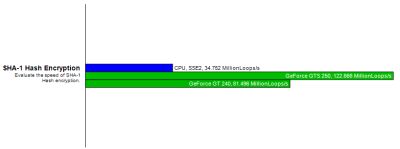
VEC technology will transform the way people interact with visual information through, for example, the realization of new mobile and wearable devices and the emergence of autonomous machines and semantically aware spaces. Advances in Visual and Experiential Computing (VEC) will enable capability, adaptability, scalability, and usability that will far exceed the simple information systems of today. The advancement of sensing technology such as RGBD (Red Green Blue Depth), multi-camera and light field imaging systems, networks of sensors, advanced visual analytics and cloud computing will challenge the longstanding paradigms of capturing, creating, analyzing and utilizing visual information. For information about VEC see Depth-Categorizing GPU-Accelerated Deep Neural Networks Perform Fast Semantic Segmentation of RGB-D Scenes.Extracting visual information: NSF/Intel Partnership on Visual and Experiential Computing (VEC)įull Proposal Deadline Date: February 20, 2015 The databases or techniques should have significant impacts, either across multiple fields or within broad disciplinary areas, by enabling new types of data-intensive research in the SBE sciences. Successful proposals will, within the financial resources provided by the award, construct such databases and/or relevant analytic techniques and produce a finished product that will enable new types of data-intensive research. I wouldn't use it in something I actually wanted to get real computation done on.A data-intensive effort: Resource Implementations for Data Intensive Research in the Social Behavioral and Economic Sciences (RIDIR)įull Proposal Deadline Date: February 23, 2015Īs part of NSF’s Cyberinfrastructure Framework for 21 st Century Science and Engineering (CIF21) activity, the Directorate for Social, Behavioral and Economic Sciences (SBE) seeks to develop user-friendly large-scale next-generation data resources and relevant analytic techniques to advance fundamental research in SBE areas of study. Personally, I would only use HIP in a research capacity. But until then I really think CUDA will remain king. I really hope GPGPU for AMD takes off, because we need a proper open source alternative to CUDA.
#OPENCL BENCHMARK UCSD DRIVERS#
This has almost always been the case nvidia's drivers and programming support have been world-class. Their already limited budget has been spread across several projects.Īnd then there's the fact that they are using resources to try to produce silicon that compares to nvidia's, and so they spend less on developing software.


First they put a lot of resources into improving OpenCL, then abandoned that in favor of HCC, and now HCC has been deprecated in favor of HIP. GPGPU support for AMD has been hairy over the last few years. IMO there are two big things holding back AMD kn the GPGPU sector: their lack of focus and lower budget.įirst, their lack of focus. Given the amount of effort and resources Intel is putting into oneAPI (SYCL sits at the heart of oneAPI), Intel dropping it anytime soon seems very unlikely to me. After all there are other companies also working on it and contributing to it. Additionally, the fact that Intel is actively upstreaming their compiler to the clang/LLVM projects makes it likely to live on in the LLVM project no matter what Intel does. In the worst case if Intel should drop it there are other SYCL implementations around that have solid support for Intel devices (e.g. I can't speak for Intel, but SYCL is larger than Intel. There's also the that nagging "Intel will soon drop it as everything else"
#OPENCL BENCHMARK UCSD CODE#
The first SYCL version expected to see widespread use is SYCL 2020 - so it's no surprise that there isn't yet so much code out there using it.

To be fair, the SYCL model is far newer than CUDA, OpenMP, or OpenACC. There's also the that nagging "Intel will soon drop it as everything else" I can't seem to shake.

This approach may end up giving good coverage across different hardware but on the other hand there ins't much actual code or actual use.


 0 kommentar(er)
0 kommentar(er)
